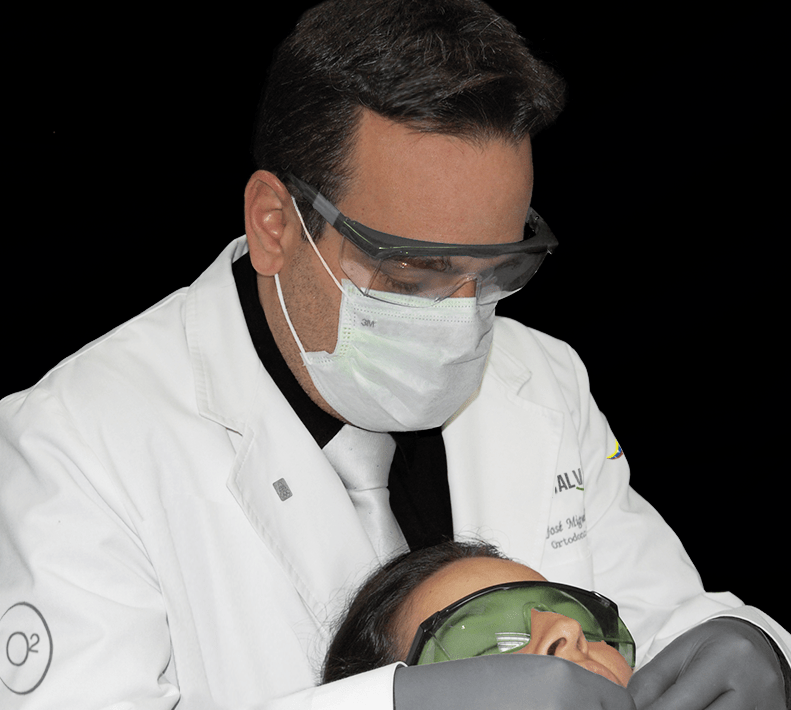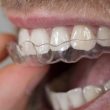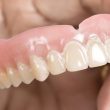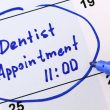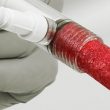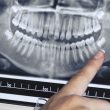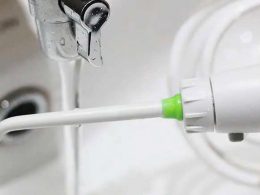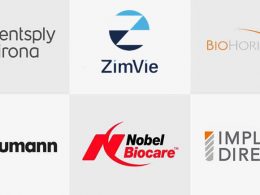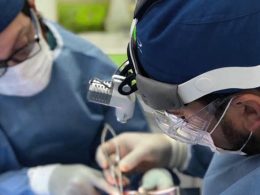Table of Contents
A very important part of the success of oral implantology lies in the postoperative period. For this, there are a series of guidelines indicated by Surgeons that all patients must comply with.
Dental implantology is performed through a surgical intervention that, although minor, with local anesthesia and ambulatory protocol in the vast majority of cases; it requires a series of aftercare necessary to minimize the chances of osseointegration failures and failing of the procedure.
The postoperative period is not usually complicated, but it requires that the patient follow the instructions to the letter, since the prolonged success of the placement of an implant depends to a great extent on the immediate care practiced after surgery.
The guidelines to follow may vary according to each intervention, the type of implants used and the particular conditions of each patient; but medication, cold, rest and oral hygiene are essential to achieve the most satisfactory recovery possible and without significant complications.
The main recommendations and care after dental implants placement are the following:
1- Do Not Spit Out and Gently Bite the Gauze Placed by the Surgeon for 1 Hour
This is essential to stop the blood. However, slight bleeding is possible for the first 24 hours. If this bleeding is more intense (hemorrhage), one or more sterile gauze should be folded, placed on the wound and compressed by biting gently with the opposing teeth, until the blood stops. If it is necessary to put more gauze, never remove the first ones, apply new ones on them. Put ice and avoid lying down. If the problem persists, contact the Specialist immediately.
2- Apply Cold On the Skin of the Intervened Area (Outside of the Mouth)
To reduce pain and inflammation, cold should be applied to the skin intermittently (at 30 minute intervals) with wrapped ice or gel compresses, at the level of the operated area, during the first 24 hours and during the longest possible time.
3- Take the Analgesics and Anti-Inflammatories Prescribed
Respecting the doses and dosage indicated. The inflammation usually subsides within a few days. In the vast majority of cases (if the patient is not allergic) we prescribe Ibuprofen 400 mg, 1 tablet every 8 hours for 3 days. In cases of allergy, take Acetaminophen or Paracetamol as we have indicated.
4- Take the Antibiotics Indicated in a Religious Way
For a minimum period of 7 days and without omissions or schedule disorders. Consider that any secondary infection would jeopardize the success of your implants. Our drug of choice is Amoxicillin + Clavulanic Acid 875/125 mg, 1 tablet every 12 hours for 7 days, starting the night before the intervention.
In cases of Penicillin allergy, we usually prescribe special protocols based on Clindamycin, Tetracycline or Azithromycin.
5- Take 2 Grams of Vitamin C Daily for 15 Days
The use of Vitamin C after a surgical procedure has favorable effects on the resolution of the inflammatory process and healing. These properties are explained by the ability of ascorbic acid to decrease the activity of pro-inflammatory cytokines, in addition to its participation in the synthesis of type I collagen, an essential element for proper scar formation.
6- Do Not Bite Solid or Hot Foods, Nor Drink Hot Beverages
Until the tissues of the affected area recover. Soft diet (soups, smoothies, fruits, purees, compotes, scrambled egg and porridges) for a week, taking care at all times that no food remains are introduced into the wound (avoid grains like rice, corn, peas, and beans). Consume all cold or warm, we repeat, nothing hot. High temperatures cause vasodilation and bleeding.
7- Stay Well Hydrated
Preferably with mineral water and natural pineapple or papaya juices, which due to their enzymatic content, relieve pain and help reduce any type of inflammation.
8- Avoid Chewing with the Dental Implant Area
Remember that you have a wound that is extremely susceptible to mechanical trauma. A week after the procedure, you will be able to start biting soft food with the intervened area.
If only one side of your mouth was involved, chew carefully through the other, taking care that the food does not move or contact the wound. If you received implants on both sides of your mouth, stay on the soft diet for 10 days.
9- Do Not Smoke, Use Straws or Suck Through the Mouth
Any oral action that involves suction will cause hemorrhage and shedding of blood clots. Drink everything directly from the cup, glass or container. If necessary, you can use a spoon.
10- Rest
Do not carry out activities of physical effort for a week, to maintain stable blood pressure and decrease bleeding.
11- Avoid Tobacco and Alcohol Completely, at Least for 15 Days
It is scientifically proven that smoking causes peripheral vascular vasoconstriction that significantly alters the process of bone healing and regeneration.
Alcohol, on the other hand, raises blood pressure and completely inhibits the effect of antibiotics.
12- Good Oral Hygiene
But it is important to avoid brushing the area where the implant was made or there are sutures to avoid traumatizing them. The day after the intervention, rinses can be performed (without swishing) with warm water and salt (1/4 teaspoon of salt in half a glass of warm water) or with antibacterial chlorhexidine mouthwashes, 3 or 4 times a day. After 1 week, you can restart the usual oral hygiene mechanisms.
13- Do Not Swish
It is one thing to rinse your mouth and quite another to swish. For the first few days, swishing will surely cause bleeding. Simply put water or mouthwash into your mouth, let it flow there by moving your head slightly, and tilt it forward to allow the liquid to drain by gravity. You do not need to move your cheek muscles to do this!
14- Sleep with Your Head Elevated
In relation to the rest of the body, to avoid the possibility of bronchoaspirating blood or any type of exudate. It is usually useful to use a double pillow for 2 or 3 days.
15- Apply Vaseline Jelly to the Lips
Especially where they meet and make an angle, until the conditions of the mouth return to normal. This will avoid great discomfort and a burning sensation on your lips.
16- In Case of Emergency, Call Your Specialist Immediately
Mainly if there is a lot of bleeding, pain or/and inflammation.
17- Go to Consultation On the Indicated Date
To monitor the wound and remove sutures or surgical dressings.
“Be Very Careful! Remember that Any Trauma or Secondary Infection, Could Cause the Rejection of Your Implants”.
DENTAL TIP
Maxillary Sinus
Also, if your surgery included procedures associated with the maxillary sinus (circumstance that would be informed by the Surgeon), it is important that:
1- Avoid Blowing Your Nose, Sneezing, or “Unclogging” Your Ears
For a period of at least 15 days. If sneezing is unavoidable, then do so freely, with your mouth open and without obstructing or resisting the pressure generated by the expulsion of air. Never try the Valsalva maneuver, which is typical for unclogging your ears and consists of trying to breathe out with your mouth and nose closed.
Any of these actions could cause an oro-antral communication, a rather serious complication that is difficult to resolve.
2- Avoid Diving or Submerging Your Head Under Water
Also, for a period of at least 15 days. Also avoid any strenuous activity or exercise that can cause increased intra-sinus pressure.
3- Use Afrin® or Any Other Nasal Decongestant
In drops or spray, every 12 hours for the first 7 days, to keep the airways permeable and facilitate post-surgical drainage of the operated cavity.
4- Take the Prescribed Antihistamine
For a period of 15 days, only if it has been indicated.
5- Do Not Travel by Plane for at Least 10 Days
Since pressure changes in the ascent and descent of the aircraft could affect the integrity and stability of the sinus membrane.
Following these indications we help the dental implant to osseointegrate correctly. Even so, as we already said, it is important to pay attention to certain symptoms that may appear during the postoperative period and for which it would be necessary to go to the consultation for the Surgeon’s supervision. Some of them are heavy bleeding, persistent pain, and exaggerated inflammation; despite the intake of prescription drugs.
If necessary, please do not hesitate to contact your Specialist immediately.
Ready to Finally Get the Dental Treatment You Deserve?
All you have to do is send us your dental basic studies so that our Professional Team can analyze your case and offer you the best treatment option, many times impossible to pay in your home country.
Lower pricing does not always mean reduced quality. DENTAL VIP Specialists are trained in the most modern dental techniques, and we are equipped with state-of-the-art instruments.
We will offer the best price at the best quality for you in Dental Implants, All on 4, Crowns and Bridges, Oral Surgery, Zygomatic Implants, Aesthetic Dentistry, Endodontics, Full Mouth Reconstruction and other highly specialized treatments.
If you are considering coming to Venezuela for dental work, contact us for more information on how we can help you.
Our WhatsApp Business contact +58 414-9033547 and our email info@dentalvipcaracas.com are at your absolute and complete disposal to make inquiries and provide you with the best possible guidance in Dentistry.
